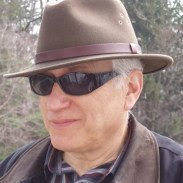I grew up watching television in the 1950s. One of my favorite shows was Perry Mason, the criminal defense attorney who always won his case before the end of the hour. He had a secretary/gal Friday named Della Street and a private investigator named Paul Drake. His usual opponent was prosecutor, Hamilton Burger.
As I recall, there was never anything mentioned about Perry’s home life. Was he married? Did he have children? What did he do in his spare time? None of that seemed to matter since the show was all about the courtroom drama and how Perry figured out who the real criminal was. It always amazed me that he only defended innocent people – he never won a case based on reasonable doubt, a standard whereby even guilty people were acquitted because of a lack of evidence. There was always another person who confessed from the witness stand before the episode ended.
Perry Mason was one of the reasons I became a lawyer. It should be noted that I was also a big fan of TV westerns, but there didn’t seem to be much of a future in being a cowboy.
I must also admit that E.G. Marshall of The Defenders was also an influence. His young associate was played by actor Robert Reed, who later came out of the closet, but who displayed no hint of gayness on the show. Which brings me to the shocking revelation that the actor who played Perry Mason, Raymond Burr, old Ironsides himself, was gay.
I learned this by reading a newspaper article by the author of a book titled, “Hiding in Plain Sight: The Secret Life of Raymond Burr.” The author, Michael Starr, wrote this:
“…he did a complete about-face from his TV alter-ego, concocting a web of deceit that included two dead wives and a dead son, fabrications repeated so many times that Burr dug himself into a hole – forced to play the heartbroken husband-and-father role to the end of his life….no one ever questioned Burr’s ‘biography,’ even though family members as close as his sister said they never met any of his dead wives or his son – and even though the dates Burr gave for his tragic losses didn’t compute when matched to the verifiable facts of his life.”
As Jerry Seinfeld so correctly stated in an episode of his classic sitcom, “Not that there’s anything wrong with that.” It’s just that I never imagined Raymond Burr in that way. I guess I should be thankful that they never showed Perry Mason’s home life, or I might have concluded that he, too, was of that persuasion.
Not that there’s anything wrong with that.
Subscribe to:
Post Comments (Atom)

No comments:
Post a Comment